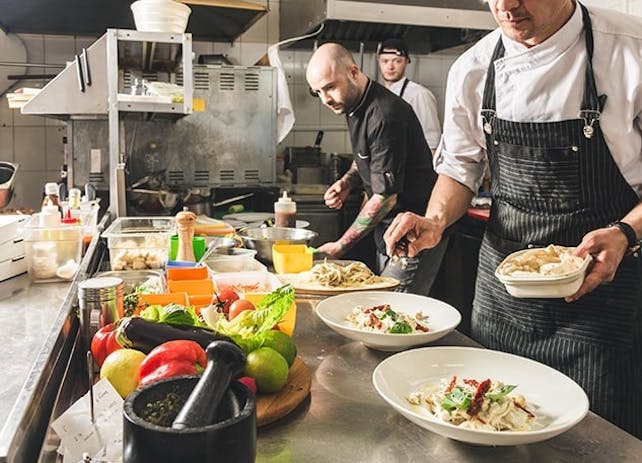A community kitchen or store can provide a place to customize your meal and grow your business. Maybe your restaurant customers have asked you to add more deliveries or cater for private parties and events. However, you may not have enough space in the kitchen for all the necessary preparations.
Or maybe you have a dream to open a restaurant but want to start a catering business first to build your reputation and customer base. The shared commissary kitchen can be the answer.

What is a shared kitchen?
Community kitchens are becoming increasingly popular and can be anything from another restaurant with a kitchen area available on certain days and times, to a large kitchen open to all types of food business owners. Common kitchen utensils can vary significantly in size and in the amount of cooking and storage utensils available, both dry and refrigerated.
The types of customers they serve also vary from place to place. For example, some soup kitchens cater primarily to bakers; others to food truck operators, and some to food retail startups and catering facilities. In all cases, a shared kitchen is a licensed and inspected commercial kitchen that is available for rent by the hour, day, week, or month.
To expand the nutrition or catering professional, community kitchens offer several benefits:
Commissary kitchens pay all the bills for utilities, pest control, security, etc.
Commissaries provide good commercial-grade equipment and maintain it.
While you need your own business license and food handler’s permit, shared kitchens make it easy to stay compliant with local health codes they’re responsible for passing inspections.
Shared kitchens provide a sense of community where you can benefit from the advice and experience of fellow operators.
Commissaries often provide additional services such as kitchen staff and incubator programs that can help you grow your business faster.